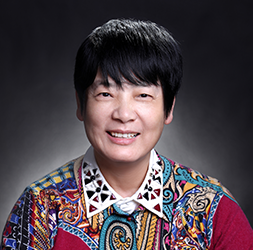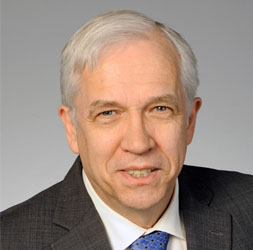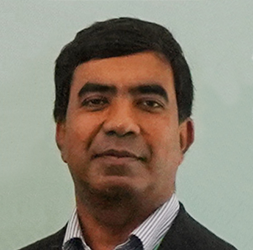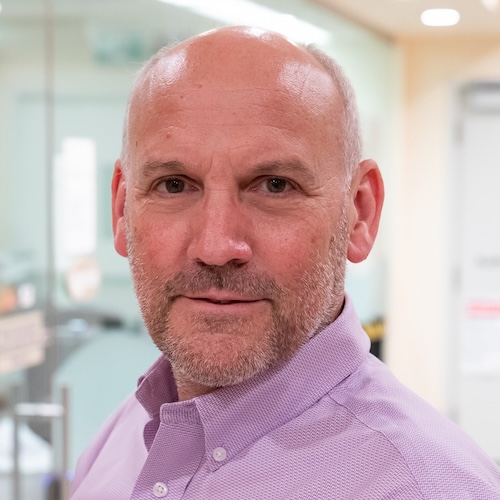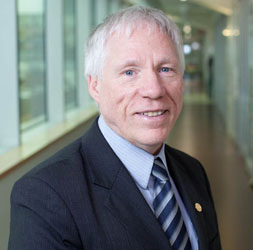
CANADA | CHINA | INDIA | SOUTH AFRICA
Canada
Catherine Birken, MD, MSc, FRCPC
Senior Scientist, Child Health Evaluative Sciences; Staff Paediatrician, Department of Paediatrics, Hospital for Sick Children (SickKids); Professor, Department of Paediatrics, University of Toronto; Affiliation: University of Toronto and Hospital for Sick Children (SickKids), Toronto, Canada; HeLTI Role: Lead PI, HeLTI-Canada Team
Dr. Birken's research includes advancing understanding of modifiable risk factors for early childhood obesity; examining measurement of weight status, assessment of growth trajectories over time, factors associated with hyperlipidemia and cardiometabolic risk. Dr. Birken studies the impact of screen time on child growth and language development. She is currently testing obesity prevention interventions integrating public health and primary care. Dr. Birken has examined the impact of severe obesity in early childhood using electronic medical record data.
 Cindy-Lee Dennis, PhD, FCAHS
Cindy-Lee Dennis, PhD, FCAHS
Professor in Nursing and Medicine, Department of Psychiatry, University of Toronto; Women's Health Research Chair, Li Ka Shing Knowledge Institute, St. Michael's Hospital; Fellow, Canadian Academy of Health Sciences; Affiliation: University of Toronto and Li Ka Shing Knowledge Institute, St. Michael's Hospital, Toronto, Canada; HeLTI Role: Lead PI, HeLTI-Canada Team
Dr. Dennis' research rigorously evaluates interventions to directly improve maternal and paternal health outcomes with the overall goal of improving child growth and development. Clinical expertise focuses on breastfeeding and perinatal mental health including depression, anxiety and co-morbidity. She has led numerous provincial and national cohort studies and clinical trials where all interventions were technology-based to increase clinical utility and accessibility. She is the lead author of eight Cochrane systematic reviews and has developed the Breastfeeding Self-Efficacy Scale, the most widely used breastfeeding measure internationally that has been translated into over 20 different languages to identify women who are at-risk of poor breastfeeding outcomes.
China – Phase 2: 2022–2027
Jianxia Fan, MD, PhD
Head of Obstetrics Department, Chief Physician, International Peace Maternity and Child Health Hospital, Shanghai, China; Professor & Doctoral Tutor, School of Medicine, Shanghai Jiao Tong University; HeLTI Role: Lead PI, HeLTI-China Team
Dr. Jianxia Fan is the head of the Obstetrics department and a chief physician at the International Peace Maternity and Child Health Hospital (IPMCH), as well as a Professor and Doctoral tutor at the School of Medicine, Shanghai Jiao Tong University, China. She has extensive research experience in basic and clinical research on the pathophysiology of endocrine and metabolic diseases in obstetrics, including gestational diabetes, thyroid diseases during pregnancy, obesity, and polycystic ovary syndrome (PCOS). Her role in the HeLTI China trial will include contributing to biospecimen collection oversight and the interpretation of clinical data and biospecimen from HeLTI China trial participants. She will leverage her expertise in cardiometabolic assessment to evaluate the cardiovascular and metabolic health of participants during both the pregnancy and postpartum periods. She will also contextualize the findings within the broader field of obstetric endocrinology and metabolic diseases, providing a comprehensive understanding of the implications for maternal and child health.
Jean-Patrice Baillargeon, MD, MSc, FRCPC
Professor, Department of medicine, Division of endocrinology, Faculty of Medicine, Université de Sherbrooke. Affiliation: Université de Sherbrooke and Centre hospitalier universitaire de Sherbrooke (CHUS), Sherbrooke, Canada; HeLTI Role: Lead PI, HeLTI-China Team
Dr. Baillargeon is an endocrinologist and a senior research scientist in reproductive endocrinology and metabolism. His primary areas of expertise include reproductive endocrinology, polycystic ovary syndrome, obesity, health system improvement and biostatistics/epidemiology. His research program aims to better understand the impacts of obesity and weight loss on women with infertility and their offspring, as well as the metabolic mechanisms of polycystic ovary syndrome. Dr Baillargeon is actually leading a large CIHR-funded multicenter RCT assessing the benefits of the Fit-For-Fertility program in women with obesity and infertility.
China – Phase 1: 2017 - 2021
Hefeng Huang, MD, PhD
Professor, Chief Physician, Dean of Reproductive and Developmental Research Institute of Fudan University; Director of the Shanghai Key Laboratory of Embryo Original Diseases; Director of the Key Laboratory of Reproductive Genetics, Ministry of Education, China; Affiliation: Obstetrics and Gynecology Hospital, Fudan University, P. R. China; HeLTI Role: Lead PI, HeLTI-China Team
Dr. Huang's research studies have focused on the effect and underlying mechanisms of abnormal maternal environment such as Gestational Diabetes Mellitus, high androgen levels on the life-long health and wellbeing in children. She directs a large birth cohort study to follow up children born from ART and found that the risk of diabetes and cardiovascular diseases was significantly higher in ART children than that in spontaneous pregnancies. Using animal models, she further validated that epigenetics in germ cells could be affected by internal environment, led to adult diseases such as diabetes, and contributed to transgenerational transmission, providing scientific evidence for gamete-embryo origins of adult diseases.
William Fraser, MD, MSc, FRCSC
Professor, Department of Obstetrics and Gynecology, Faculty of Medicine, Université de Sherbrooke; Research Director, Centre hospitalier universitaire de Sherbrooke (CHUS); Affiliation: Université de Sherbrooke and Centre hospitalier universitaire de Sherbrooke (CHUS), Sherbrooke, Canada; HeLTI Role: Lead PI, HeLTI-China Team
Dr. Fraser is an obstetrician and a senior perinatal research scientist. He holds a Tier 1 Canada Research Chair in Maternal and Fetal Medicine at the Université de Sherbrooke. His research programme focuses on the evaluation of risk factors and interventions in the perinatal period with the goal of improving maternal and child health. Dr. Fraser has led several national and international clinical trials as well as two large pregnancy and birth cohort studies. Funding has been secured for follow-up of these cohorts as the children reach school age and move on toward puberty.
HeLTI Quote: "The HeLTI Consortium is inviting established and emerging DOHAD scientists to join our multidisciplinary international network of co-investigators. Through collaboration and data sharing, our goal is to optimize the scientific impact of our unique, prospectively harmonized data and biobanks."
India
Kalyanaraman Kumaran, DM, FFPH
Head of Epidemiology Research Unit and Senior Scientist, CSI Holdsworth Memorial Hospital, Mysore; Professor, MRC Lifecourse Epidemiology Unit, University of Southampton, UK; Affiliation: CSI Holdsworth Memorial Hospital, Mysore, India and University of Southampton, UK; HeLTI Role: Lead PI, HeLTI-India Team
Dr. Kumaran has a background in epidemiology and public health. His research focuses on the developmental origins of health and disease, with a specific interest in the development of public health interventions. He is involved in the follow-up of two pre-conceptional micronutrient supplementation trials and in the longitudinal follow up of a number of birth cohorts in India that have investigated associations of maternal nutrition with growth and neurodevelopment in the offspring.
HeLTI Quote: "The HeLTI program across four settings in different stages of transition has the potential to transform our approach to maternal and child health."
Stephen Matthews, PhD, FCAHS
Professor, Departments of Physiology, Obstetrics & Gynaecology and Medicine, University of Toronto; Director of Research, Alliance for Human Development; Scientist, Lunenfeld-Tanenbaum Research Institute, Sinai Health System; Affiliation: University of Toronto and Alliance for Human Development, Lunenfeld-Tanenbaum Research Institute, Sinai Health System, Toronto, Canada; HeLTI Role: Lead PI, HeLTI-India Team
Dr. Matthews' fundamental basic research is focused on 1) how the early environment influences fetal brain development and neurodevelopmental outcomes after birth; 2) protection mechanisms in the fetal brain. His lab-based research team are primarily focused on epigenetic mechanisms (DNA methylation and miRNA) of developmental programming and molecular regulation of drug transport systems in the developing brain. Dr. Matthews has also led a number of human cohort studies and been involved in large international clinical trials, with a major focus on stress and glucocorticoids in pregnancy and impact on neurodevelopmental outcomes in children. He is currently the Canadian-lead on the HeLTI-India project.
HeLTI Quote: "The HeLTI-Platform provides a unique opportunity to translate emerging knowledge of early development towards improving health trajectories in mothers and their children, while at the same time furthering our understanding of the fundamental mechanism involved."
South Africa
Shane Norris, PhD, MASSAf
Director of SAMRC Developmental Pathways for Health Research Unit, Department of Paediatrics, School of Clinical Medicine; Director of DST-NRF Centre of Excellence in Human Development, University of the Witwatersrand, Johannesburg, South Africa; Affiliation: University of Witwatersrand, Johannesburg, South Africa and University of Southampton, UK; HeLTI Role: Lead PI, HeLTI-South Africa Team
Dr. Norris is an epidemiologist with expertise in maternal and child health, particularly obesity and developmental origins of health and disease. He is the PI of several cohorts that have characterized longitudinally health and development trajectories of children and adolescents in South Africa.
HeLTI Quote: "HeLTI is a landmark set of global studies that will offer us a unique opportunity to learn how to foster healthier trajectories for our children."
Stephen Lye, PhD, FCAHS, FRCOG
Senior Investigator, Lunenfeld-Tanenbaum Research Institute, Sinai Health System; Executive Director, Alliance for Human Development; Scotia Bank Scientist in Child and Adolescent Health, Lunenfeld-Tanenbaum Research Institute, Sinai Health System; Professor, Departments of Obstetrics & Gynecology, Physiology and Medicine, University of Toronto; Affiliation: Alliance for Human Development, Lunenfeld-Tanenbaum Research Institute, Sinai Health System, Toronto, Canada; HeLTI Role: Lead PI, HeLTI-South Africa Team
Dr. Lye’s research studies have focused on the molecular mechanisms responsible for pregnancy complications such as preterm birth, preeclampsia and IUGR as well as gene-environment interactions during development that impact trajectories to life-long health and wellbeing in children. For example, his research has shown how genetic predisposition to obesity can be mitigated by early life interventions (i.e. exclusive breastfeeding). Dr. Lye contributed to the Lancet Series on Early Child Development that proposed the concept of nurturing care to support early child development, particularly in low income settings. Through a series of laboratory and clinical studies (including HeLTI) his research seeks to operationalize nurturing care as an intervention for at-risk families in LMICs, including those in crisis situations.
Rayjean J. Hung, Ph.D., M.S.
Associate Director of Population Health and Head of the Prosserman Centre for Population Health Research, Lunenfeld-Tanenbaum Research Institute, Sinai Health, Toronto Canada. Professor of Epidemiology at the Dalla Lana School of Public Health, University of Toronto. Canada. Canada Research Chair on Integrative Molecular Epidemiology. HeLTI Role: Co-PI, HeLTI-South Africa Team
Dr. Hung’s research focuses on characterizing individual molecular profiles related to complex disease etiology and progression. In particular, Dr. Hung has expertise in integrative multi-omics data science based on machine learning analytics using high-dimensional data for prediction model and risk trajectories. She has been leading several large-scale international studies for cancer research, as well as projects on early life determinants on complex diseases in longitudinal cohort studies. She has several long-standing collaborative projects with the World Health Organization and National Institutes of Health, and has advisory roles for several national and international organizations. The overall goal of Dr. Hung’s research is to bring omics data discovery to robust validation and implementation to reduce morbidity and mortality related to non-communicable diseases.



